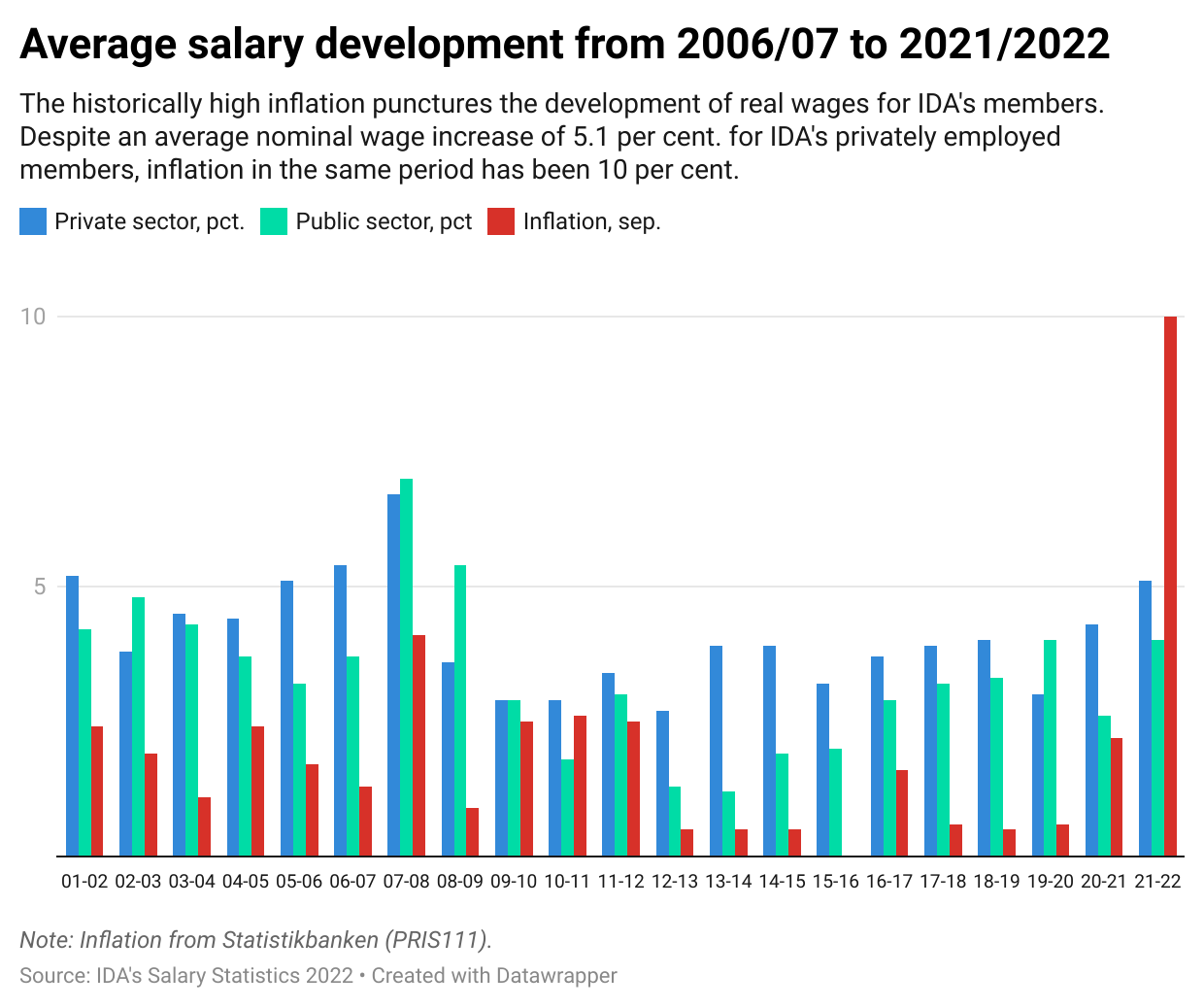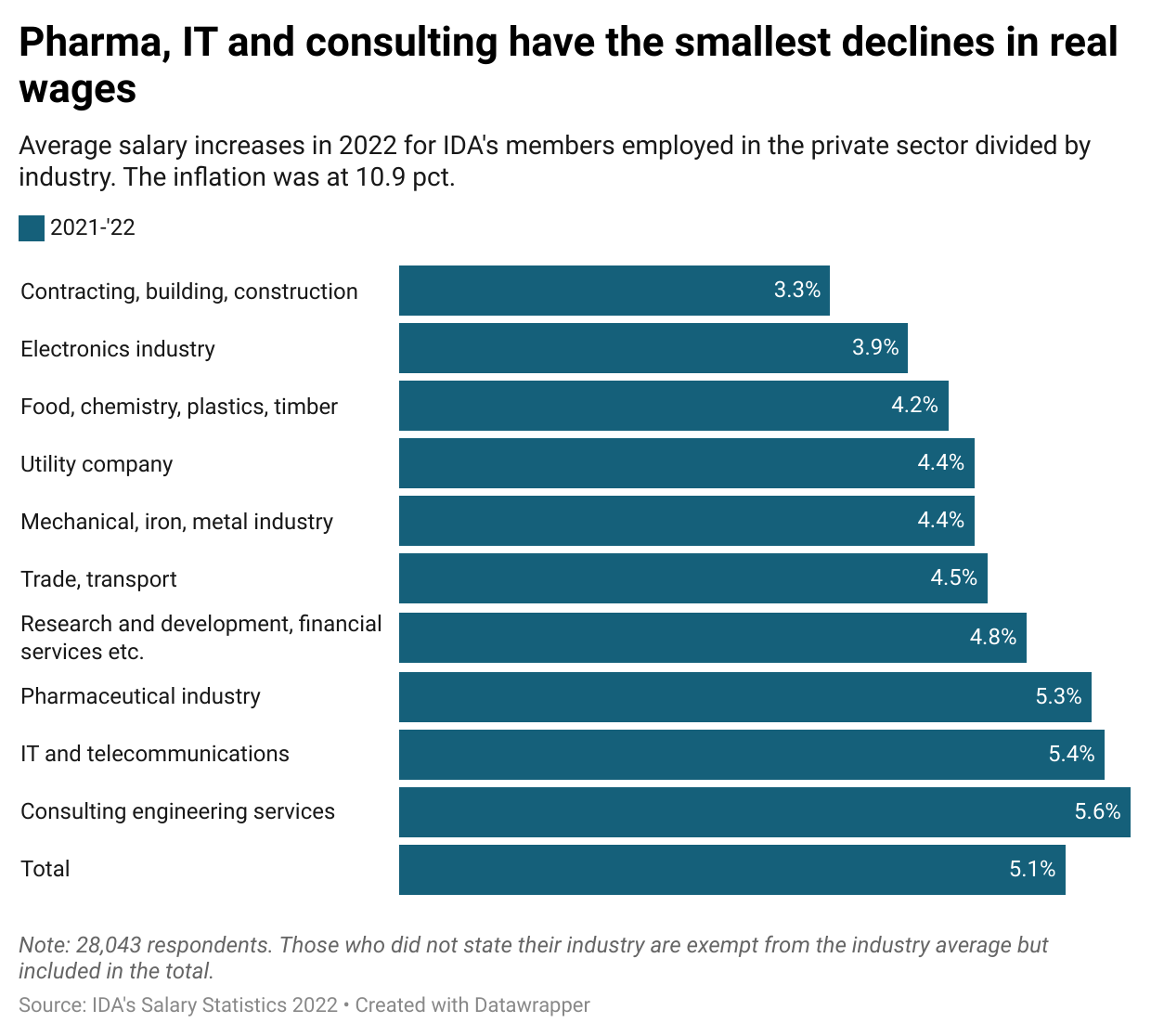Has your union representative made a difference for you and your colleagues? Then you can say thank you by nominating them for the Union Representative of the Year award.
News
Salary increases cannot keep pace with inflation

"Et annus horribilis."
This is how IDA's Chief Economist Thomas Søby describes the salary development of IDA members in the past year.
"A nominal average salary increase of more than 5% is in itself not bad. The problem is that we are suffering under the highest inflation in this country for more than 40 years. That situation is completely eroding real wage growth for the vast majority," he says.
For both private and public sector IDA members, on average, are seeing their pay rises eaten up by the soaring inflation that has hit the economy. On average, private sector members have seen their pay rise by 5.1%, while inflation has been at 10.0% over the same review period (September 2021-September 2022).
Among the more than 16,000 members in the state, municipalities and regions, the salary trend as a whole has been 4.0 per cent. In the period under review (May 2021-May 2022), inflation has been 7.4 per cent.
As a result, average real wage development has been negative for members in both the private and public sectors, at -4.9 per cent and -3.4 per cent respectively over the past year.
Thomas Søby thinks it is paradoxical that highly educated people with STEM expertise should experience a real wage decrease here and now.
"We are in a unique situation with employment at a record high, the unemployment rate for engineers is currently below 2%, new graduates are entering the labour market at a record pace, and in general, Danish businesses continue to perform well and have good earnings. We have a documented shortage of highly skilled workers in IT, technology and science here and now and in fact as far as the eye can see. In this situation, it is paradoxical that engineers and IT specialists, for example, are now seeing their purchasing power eroded so massively," he says.
According to the IDA's chief economist, there is room in the economy for higher salary increases. Even in the current situation of high inflation.
"I don't see the big risk of us ending up in a situation of a wage-price spiral that other economists worry about. Everything suggests that inflation will come under control in the coming year, and with a solid labour market and strong corporate economies, there is room in many places for higher salary increases than those we are seeing now," says Thomas Søby.
"But there is also no doubt that the world has become more uncertain than it was a year ago. And although inflation will fall, it is not a given that we will return to the old normal of inflation of a few percent a year. So I would also advise members to be ambitious at the bargaining table next time they have to negotiate pay. The labour market for highly skilled people with STEM skills is by no means frozen and will not be for years to come. And that must bring real wage increases so we can recover the loss of purchasing power that 2022 has offered," says Thomas Søby.

